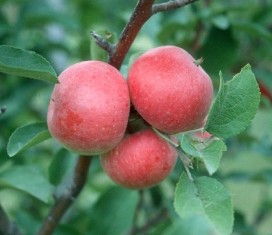 A report by CBC today shows that small amounts of pesticide residue are commonly found on organic food. The story leaves many consumers asking: should this be a cause for alarm? Is it still worth eating organic?
A report by CBC today shows that small amounts of pesticide residue are commonly found on organic food. The story leaves many consumers asking: should this be a cause for alarm? Is it still worth eating organic?
Of 178 organic apples tested by the CFIA in 2009/2010, 24 percent were found to have residues of pesticides including some of what Pesticide Action Network calls the most dangerous “bad actor” chemicals such as Phosmet, Captan, and Thiabendazole.
It should be kept in mind that results showed much lower levels on organic samples than non-organic samples. But, given the uncertainty of how safe some of these chemicals are, even at minute levels, the residue is a cause for concern. It is a good idea to wash your food even if it is organically grown.
However, the story brings to light a bigger concern. Contamination of our environment by toxic chemicals is so ubiquitous that traces can be found even on food grown under the strict terms of organic regulations. There is now no wilderness so remote that it is not affected by the industrial soup we have spilled into our air, oceans and soils. Rather than suggesting that it is not worth the bother to eat organically, the moral of the contamination is that we should all do more to reduce the production of dangerous chemical and their release into the environment, the food chain and ultimately our bodies. Supporting the organic industry is part of that picture.
 One further point is brought to light by the story. In the United States, there are plans underway, in response to contamination incidents such as this, to require organic producers to pay for more stringent testing of their produce. This will inevitably raise the price of organic food, and push the cost of contamination onto those who are merely bystanders. Under the principle of polluter pays, it should be the pesticide companies who are held responsible for their wayward products, and who should pay for the costs of testing and contamination.
One further point is brought to light by the story. In the United States, there are plans underway, in response to contamination incidents such as this, to require organic producers to pay for more stringent testing of their produce. This will inevitably raise the price of organic food, and push the cost of contamination onto those who are merely bystanders. Under the principle of polluter pays, it should be the pesticide companies who are held responsible for their wayward products, and who should pay for the costs of testing and contamination.
For the sake of your health and the environment, continue to eat organic. But this is a reminder that without proper policies, regulations and community action, individual consumption habits can only do so much for protecting yourself and your family from environmental hazards.



A new study in France finds organic food has 223 times less pesticides than conventional food. Maybe we need to look into how they are monitoring food there.
http://www.cyberpresse.ca/vivre/sante/nutrition/201112/20/01-4479644-223-fois-moins-de-pesticides-dans-les-aliments-bio.php
Hmm. Well, I think that “individual consumption habits” can do a bit more for protecting our families. If you are eating “organic” food that comes from an intensively agricultural area such as California–or even, in the case of apples, certain spots in B.C., such as the Okanagan Valley–the food is more likely to be contaminated than if it from a smaller, local farmer. That is why we buy local first, organic second. I don’t expect a huge outfit like Earthbound to be looking out for my interests in the way that I know my local friends are. And also: YES, there will be less pesticide random residues when there are less ag chemicals in general, so everyone should buy organic as much as possible.
It is time that corporations responsible for pesticide contamination pay damages to organic producers and growers to cover the costs of testing, for the inconvenience and time spent on testing and for harming clean produce. This is called food justice.